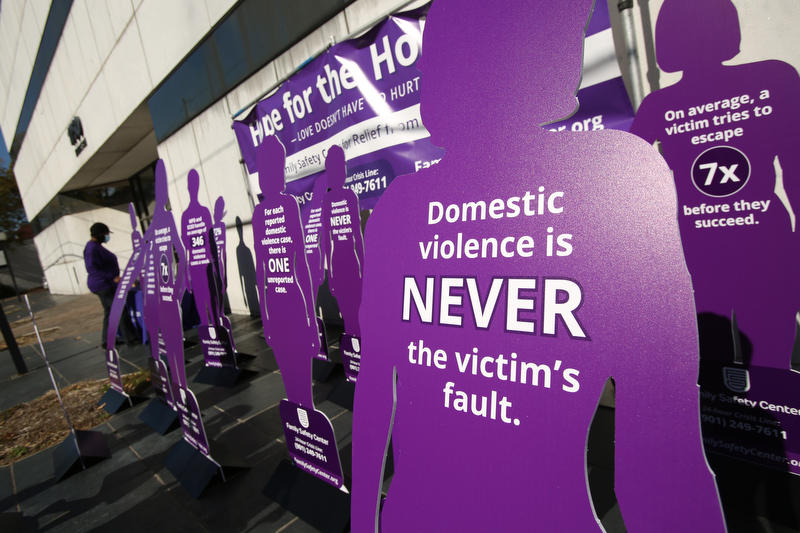
This story was produced in partnership with the Institute for Public Service Reporting, and is part of the series Surging in Silence, which is supported by the Pulitzer Center.
In a record-breaking year for homicides in Memphis, deaths attributed to domestic violence have nearly doubled compared to 2019. Police and advocates say the pandemic has turned many of the factors that fuel domestic violence, such as unemployment and isolation, into a powder keg for abusive relationships.
Already, domestic violence — or DV — cases comprise more than half of all police investigations. In Memphis, that's about 15,000 cases annually, handled by a staff of just 20.
Lt. Stephen Roach, a supervisor in MPD's Domestic Violence unit, says this year has been particularly violent.
"We're seeing a lot less strangulation and a lot more shootings and stabbings," he says. "Roughly, I would probably say it's increased probably anywhere from 15 to 20 percent over last year."
Roach says the cases involve family members, kids, even the elderly. But most of all, he says, "What I'm seeing an increase of is more intimate partner violence."
That is defined as violence between current or former spouses or partners. The increase is not surprising in Tennessee, which ranks 11th among states with the nation's highest rates of women killed by intimate partners.
Not all victims are female. Statistically, one in four women and one in nine men will experience domestic violence. And of this year's 20 homicide victims, seven were men. However, most of them had been previously charged with assaulting the women who wound up killing them. Several of those cases were deemed justified self-defense.
Sgt. Richard McKinney of the Shelby County Sheriff's Office says, "This is a very, very, very difficult time for the country."
The pandemic has strained a lot of relationships, he says. But when abusers and victims are locked down together, without even a workplace to go to for relief, that can become dangerous.
"When you have stay-at-home orders and you have layoffs with jobs, all of those things are the ingredients for a domestic disaster," McKinney says.
In fact, a national study has shown that unemployment is the biggest predictor of whether a woman in an abusive relationship will be murdered. In Memphis, unemployment is still three times higher than it was pre-pandemic.
The second biggest predictor of murder is access to a gun, by far the most common weapon used in any homicide. And guns are fairly easy to come by, says Shelby County District Attorney Amy Weirich. Due to Tennessee's gun nonrestrictive laws, a rising number are stolen weekly from cars and often used for criminal activity.
Weirich says that's led to gun crime going up: "Every category you can think of is up, way up, across the board, including DV."
Weirich says her Domestic Violence Unit of prosecutors "inherits about six to seven thousand new cases every year. The numbers are staggering."
Many of those cases are now on hold, she says, because jury trials have been suspended due to COVID. However, even in a normal year it's often hard to get victims to prosecute abusers, sometimes because they're afraid of more violence, or because they care about the abuser, or rely on them for financial support.
Another big reason, says Weirich, is how long it takes these cases to go to trial.
"A victim of a domestic violence crime should be able to immediately access help from the courts," says Weirich. "They shouldn't have to wait for a docket opening."
Expediency can save lives. On average, it takes victims of domestic violence seven attempts before they are able to leave their abusers for good. During that time, violence typically escalates — sometimes fatally.














